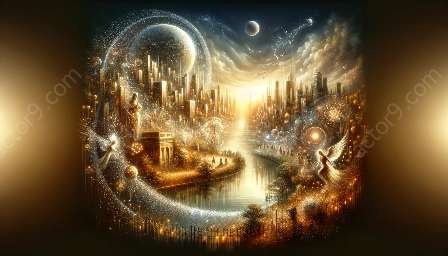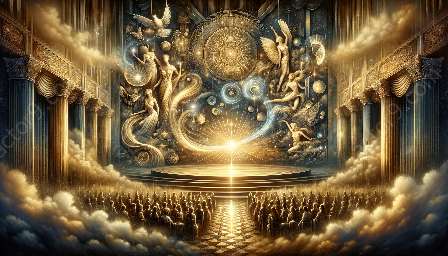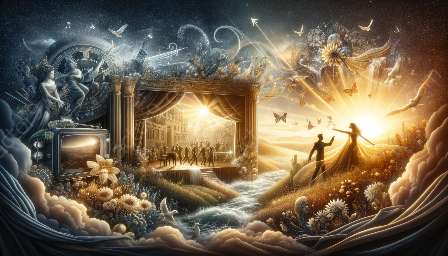Amazement and disbelief are common reactions in the audience during magic performances, and these psychological responses have fascinated experts in the psychology of magic and illusion. The allure of magic lies in its ability to defy logic and challenge our perception of reality, prompting us to question what we believe to be feasible.
Psychology of Magic and Illusion
Magic performances often induce a sense of amazement and disbelief due to the intricate interplay of cognitive and perceptual processes. The psychology of magic and illusion delves into the mechanisms that underpin these reactions, shedding light on the ways in which magicians exploit our cognitive vulnerabilities to create astonishing illusions.
One fundamental aspect of the psychology of magic is the concept of attention. Magicians are skilled at manipulating the audience's attention, directing it away from crucial actions and objects while diverting focus towards inconsequential elements. This diversion of attention serves as a catalyst for eliciting amazement, as spectators are left bewildered by the unexpected revelation of the concealed truth.
Furthermore, the psychology of magic emphasizes the role of perceptual biases and mental shortcuts in shaping our interpretation of magical performances. Magicians exploit these cognitive tendencies to create illusions that challenge our understanding of cause and effect, resulting in profound feelings of amazement and disbelief.
Magic and Illusion
Magic and illusion form a captivating realm that captures the imagination and challenges our understanding of the world. The art of magic relies on principles deeply rooted in human psychology and perception, drawing on our innate inclinations and cognitive processes to craft experiences that transcend conventional reality.
The intrinsic appeal of magic lies in its capacity to elicit emotional responses that span the spectrum from wonder and awe to skepticism and disbelief. As spectators engage with magic performances, they are confronted with paradoxical experiences that blur the boundaries between what is perceived as possible and impossible.
When it comes to the psychology of magic and illusion, cognitive scientists and psychologists have unraveled the intricate dynamics that contribute to the experience of amazement and disbelief. Through empirical research and psychological experimentation, they have uncovered the psychological mechanisms that underlie these reactions, unveiling the subconscious workings of our minds when encountering magical phenomena.
By uncovering the psychological underpinnings of amazement and disbelief in magic performances, we gain a deeper appreciation for the profound impact of magic on our cognitive processes and emotional responses. Understanding the intricate interplay between perception, attention, and belief offers valuable insights into the nature of human cognition and the captivating allure of magic.


















